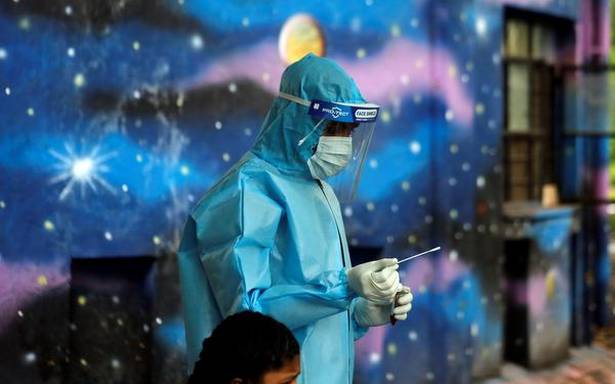Half the people, or 57%, tested in the slums in Mumbai had been exposed to and developed antibodies against the SARS-CoV-2 virus as compared with only 16% of those tested in residential societies, according to a survey conducted by the Brihanmumbai Municipal Corporation in three wards of Mumbai.
Results from Delhi’s seroprevalence study earlier this month found that nearly a quarter of the 21,000-odd samples tested suggested exposure to the virus, and some of the densest districts had over 20% prevalence.
Also read | India reports over 1 million COVID-19 recoveries
These studies, said an expert, suggested that a peak in infections was nowhere on the horizon.
“Testing strategies differ in the two cities, though they lead the tables in confirmed cases. The positive is that casualty rates from the disease are lower than initially expected. However, it is also evident that the lockdown or the measures to arrest the spread of the disease have largely failed,” said a government epidemiologist involved in the surveys, who did not

